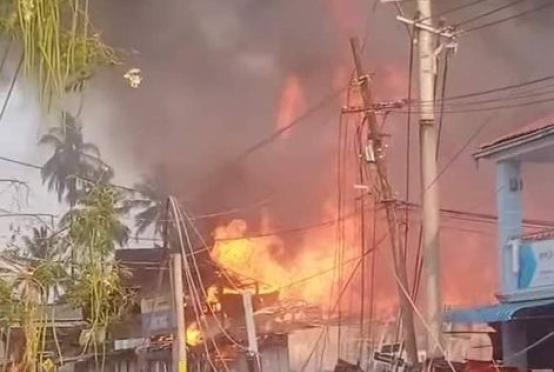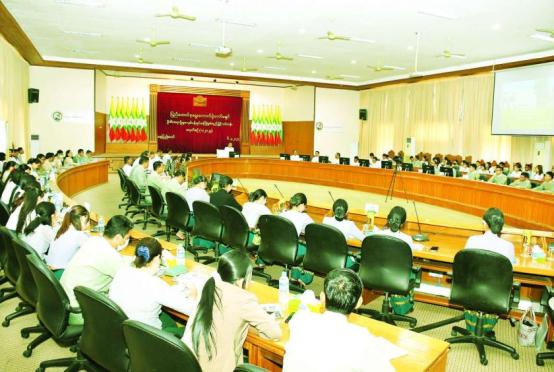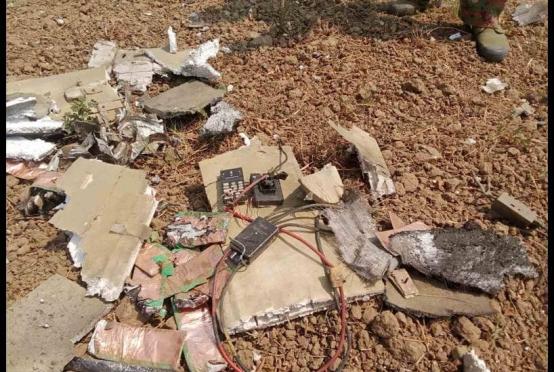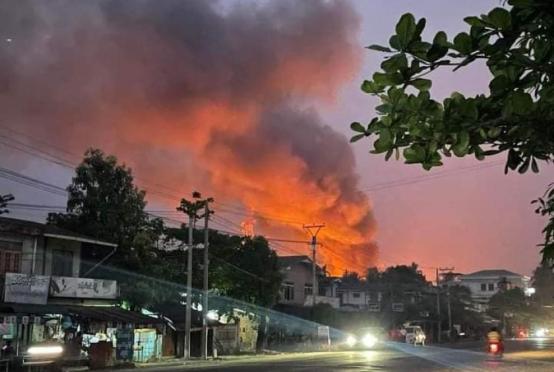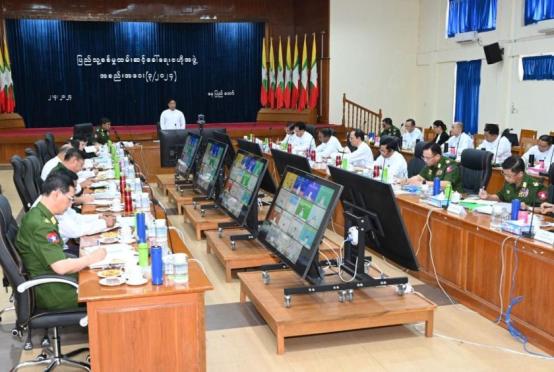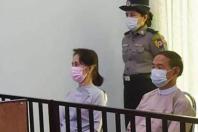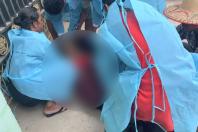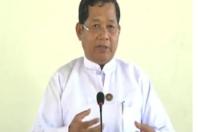Phyo Min Thein, Yangon Chief Minister, held a meeting with MRTV, MRTV-4, MITV and Sky Net, which are partially related to the government except MRTV on November 8, saying that the charge against three senior journalists from Weekly Eleven Journal would be handled in accord with the guidance of the president.
It was learnt that only a few of local news agencies had been invited to the meeting organized by Yangon regional government. Yangon Chief Minister Phyo Min Thein clarified matters relating to charge against three senior journalists from Weekly Eleven Journal on November 8.
One News Myanmar broadcast the video file on the clarification of the Yangon Chief Minister for about 18 minutes.
Yangon regional government sued chief editor Kyaw Zaw Lin, editor in-charge Na Yi Min and chief reporter Phyo Wai under Section 505 (b) on October 10.
The Weekly Eleven Journal issued on October 8 carried the article about “Closure of unprofitable filling stations, school buses with unknown borrower and public shares with individual names” written by Phyo Wai.
Plaintiff Aung Kyaw Khaing sued three senior journalists of Weekly Eleven Journal—Chief Editor Kyaw Zaw Lin, Editor In-charge Dr Min Lwin (a) Na Yi Min and Chief Reporter Phyo Wai (a) Phyo Wai Win under Section 505 (b) of Penal Code for defaming the reputation of the regional government.
Regarding the incident, President Win Myint gave guidance. After the guidance of the president, chief editor Kyaw Zaw Lin, editor in-charge Na Yi Min and chief reporter Phyo Wai were bailed out on October 26. The accused would continue facing the trial on November 9.
“We sought legal suggestions to charge against the Eleven Media and opened a file. The President Office gave guidance to us in this regard. The presidential guidance said a complaint should be lodged to Myanmar Press Council and negotiations should be conducted with the MPC. If negotiations are unsuccessful, go to legal process. For that reason, we did not object to the bail submitted by the advocate lawyer to the accused persons. We complied with the bail.
“At the same time, we will drop the charge. We already lodged up the complaint to the MPC. We will monitor the result of the negotiations with the MPC. We demand that we would like new agencies and the Eleven Media to carry the wrong news back to publication. If the Eleven Media accept it, the case will come to a stop. If the negotiations are not successful, we will carry it on according to the legal procedures. We will seek legal suggestions from the advocate general. We will try in accord with legal rules and regulations incapable of hurting freedom of press.
The media organizations objected to the charge against three senior journalists of Weekly Eleven Journal. In this regard the president gave guidance on October 17.
“Our regional government made investments in this matter. The first point is that we spent K35 billion and more than K70 billion on two types of transport sector. The another point is that we spent K 54 billion on Yangon Metropolitan Development Company and K 10 billion on Yangon new town plan. Regarding these investments, differences are arising in the discussions of the people and the expressions of the media. In the transport sector, a total of 1,000 vehicles were purchased by spending K 70 billion. In this situation, Reuters News Agency accused us of having no transparency.
“In connection with the case, we explained it to Reuters but it did not state the news. In the transport sector, we would like to explain the allocation of additional budget to spend K 70 billion. We had three titles of expenditures during 2016-2017 fiscal years. The first title is ordinary expenditures especially small costs. Another one is capital expenditures. The budget allocated to us is the debt expenditure. The debut expenditures always stay on the list of the government and it never disappears. Therefore, we don’t have the right to buy vehicles by spending K 70 billion,” said the chief minister.
“Instead, we will have to make investment in something. For that reason, we introduced a bus reform programme and we invested K 70 billion in two private companies running yellow buses. The first one is YBPC, we invested K 35 billion in it and another K 35 billion in YUPT. They represent public companies. The government did not buy the vehicles. The public company include those from the private sector, the people and share holders. Therefore, the public company bought the buses. The Yangon regional government gave help in purchasing the buses negotiating with the Chinese central government.
“The Chinese embassy provided the assistance to Yangon regional government. It is G-to-G agreement. But, the purchase is the B-to-B. It means business to business. Therefore, it does not mean that the government bought the buses, but it means the government made the investment. These spending will remain as the debt expenditures. We don’t have the right to use up these costs. It always remains under the title of the debt expenditure,” said the chief minister.
Translated and Edited by Win Htut
Charge against three senior journalists will go on as president instructed: Yangon Chief Minister

